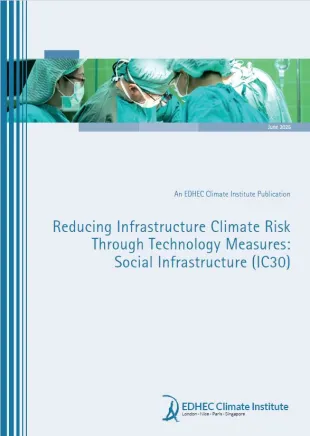This publication presents an analytical assessment of key strategies for reducing the climate-related transition and physical risks facing social infrastructure assets (IC30), including healthcare, education, government, and recreational facilities. It forms part of a broader series exploring risk mitigation across major infrastructure superclasses.
Drawing on an extensive literature review and engineering-based evaluation, the paper identifies and quantifies the potential of 20 decarbonisation strategies and a comprehensive suite of climate resilience measures. These strategies address greenhouse gas emissions across Scope 1, 2, and 3 categories, and physical risks arising from flooding, extreme wind, heat, and wildfires.
The report provides high-level guidance for infrastructure asset owners, investors, and policymakers seeking to:
-
Evaluate the materiality and cost-effectiveness of mitigation strategies,
-
Understand emissions reduction pathways applicable across diverse social asset subclasses,
-
Implement evidence-based resilience solutions tailored to physical climate hazards.
The findings emphasise the importance of Scope 2 emissions reduction—primarily through renewable energy procurement and on-site generation—as the most impactful and cost-efficient pathway to lower transition risk. In parallel, layered physical adaptation strategies, such as flood barriers, green infrastructure, and fire management practices, offer substantial damage reduction benefits at relatively modest capital cost.
The paper aims to support informed decision-making in capital planning, operational management, and long-term sustainability strategy for social infrastructure under climate stress.
